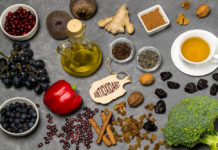The Causes of Stomach Bloating and Bloating Remedies
1. Constipation
While constipation tends to not be too serious, dealing with it can be quite uncomfortable and a common cause of stomach bloating. But despite variations in individuals’ versions of “normal” bathroom patterns, going longer than three days without a bowel movement is generally deemed too long.
Bloating Remedy: Constipation itself has numerable causes, though increasing dietary fiber, water, and physical activity have shown to assist in digestive regulation. Probiotics may also ease constipation by restoring bacteria housed in the gut.
2. “Diet” Products
You may have made a conscious effort to switch to those “diet” products amidst your ode to a healthier lifestyle. While such products are lower in refined sugar, they become compensated with artificial sweeteners, sugar substitutes, and sugar alcohols. Although some individuals are more sensitive to them than others, these “fake sugars” may be the underlying culprit of a bloated stomach and gas.
Bloating Remedy: Reduce or cut out such “diet” products and gravitate towards naturally sweetened foods to take care of the pesky sweet tooth, such as berries and yogurt or this nutritious avocado ice cream recipe. But if truly craving the real sweet deal, allow yourself to indulge on a moderated serving.
3. Too Much Air
Yes, you read that correctly… While this may seem like an unusual concept considering lungs require sufficient air for continuous breathing (and life, for that matter), too much can cause upper intestinal gas and a bloated stomach.
Bloating Remedy: You may be swallowing excess air for a number of reasons, though you can reduce “too much air” by limiting gum chewing, munching with the mouth closed, and slowing down during mealtimes. Cutting back on straw use can also reduce the risk of inhaling too much air that may end up causing bloat, while limiting regular and diet sodas not only cuts back on added sugars and artificial sweeteners, but can defeat a bloated stomach by cutting out bubbly carbonation.
4. Overeating
Feeling bloated following a large meal is fairly common, especially during those food-filled holidays and celebrations. Additionally, overeating on fat-filled foods may further trigger and accelerate bloat, as fat digestion is a relatively slow digestive process compared to both carb and protein.
Bloating Remedy: You do not need to necessarily need to “undereat” per se, but try to stick to suggested serving sizes. You can further reduce overeating by slowing down when eating, staying hydrated, increasing fiber intake, and exclusively eating based on hunger and satiety cues rather than impulses and temptations.
5. Fluid Retention
Also known as water retention, retaining water can be extremely uncomfortable and raise feelings of bloat. Fluid retention refers to excessive fluid build-up within the body, largely occurring in circulatory system, body tissues and cavities. Retaining fluid may be related to cardiovascular disease, changes in the lymphatic system, kidney insufficiency, pregnancy, physical inactivity, medications, salt, and hormones.
Bloating Remedy: With fluid retention having multiple etiologies and being rather complex, the bloating remedy mostly targets its direct cause. Limiting salt intake, increasing exercise, altering medications if capable, managing the conditions related to the heart or kidneys, etc. can lower the risk of fluid retention.
6. Digestive Disorders
Digestive problems are numerous, though common disorders and conditions that may trigger a bloated stomach include inflammatory bowel disease (IBD), irritable bowel syndrome (IBS), small intestinal bowel overgrowth (SIBO), gastroparesis, and a bowel obstruction. And whether it be an intolerance to milk or sensitivity to gluten, the gastrointestinal tract may also have trouble digesting specific compounds in foods. For example, lactose intolerance is when the body is unable to breakdown lactose, a naturally-occurring sugar found in milk and dairy products, while those suffering from Celiac disease are unable to safely digest gluten.
Bloating Remedy: The solution lies in managing the specific disorder itself, though treatment across the board includes both lifestyle changes and medications. For instance, a well-balanced diet limiting concentrated sugars and sugar substitutes may be beneficial in IBS whereas a low-fiber diet may manage IBD, while eliminating food intolerance-related bloat is by removing the primary trigger food. So if intolerant to lactose, remove milk and associated dairy products and if diagnosed with Celiac disease or gluten sensitive, eliminate gluten with these 12 tips that will change your life. But rather than self-diagnosing or managing without professional guidance, always consult with your primary care provider to ensure the upmost safety.
7. Cancer
While it is not so common, cancer is a serious cause of bloating and should not be taken lightly. In fact, persistent bloating has been associated to ovarian, uterine, pancreatic, stomach, liver, and colon cancers.
Bloating Remedy: Especially if bloating is a new occurrence and is persisting, seek medical care as soon as possible. Early detection makes cancers easier to treat and seeing your doctor could be lifesaving!









